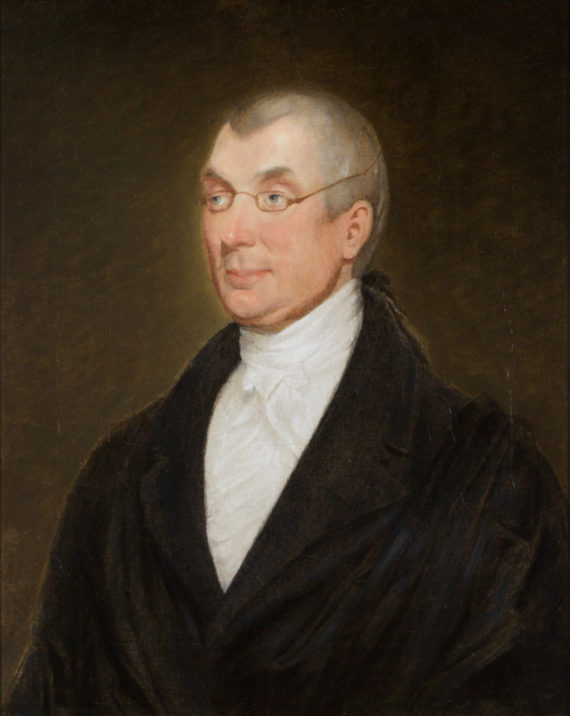
A review of Irreconcilable Founders: Spencer Roane, John Marshall, and the Nature of America’s Constitutional Republic (LSU Press, 2021) by David Johnson
Of all the leading Jeffersonians of the early Republic—Jefferson, Madison, John Randolph of Roanoke, and John Taylor of Caroline—Spencer Roane is arguably the most obscure. This obscurity is lamentable because while Jefferson and Madison built and led their party, and Randolph defended it with colorful and memorable bromides on the floors of Congress, and Taylor preached it to the masses by publishing treatises, Roane served as the Jeffersonian’s judge. A member of the Virginia Court of Appeals from 1795 to his death in 1822, Roane’s ardent defense of state sovereignty and Jeffersonian republicanism rub against the traditional story of early nineteenth-century American constitutional and jurisprudential history. That story fêtes the “Great” and “Heroic” Chief Justice John Marshall as the progenitor of modern American constitutionalism, riding his quadriga of constitutional nationalism in triumph while vanquishing his foes into “a deep and dark historical twilight.” Roane’s defense of Jeffersonian principles, so the story continues, represented one of the last significant gasps of strict construction and state sovereignty before becoming the crude and moldy relic of Southern opposition.
David Johnson’s excellent Irreconcilable Founders: Spencer Roane, John Marshall, and the Nature of America’s Constitutional Republic, offers a corrective to that account. In the first book-length treatment of Roane ever published, Johnson, a judge of the circuit court of Chesterfield County, Virginia, recovers a deeply learned but temperamentally thinned-skinned jurist who shared the Jeffersonian belief in “swearing eternal hostility to all forms of tyranny and acted accordingly.” Johnson’s detailed account of Roane’s constitutional thought and political and judicial career offers a compelling case that the Virginia judge deserves to be placed at the center of Jeffersonian republicanism. In defending Jeffersonianism, Roane lacked the idiosyncrasies of Randolph, proved more politically able than Taylor, and was every bit the intellectual equal of Jefferson and Madison.
The Jeffersonian Jurist
The Roane that leaps from the pages of Johnson’s book was a devout Virginian republican who dedicated his political and judicial career to preserving the birthright of the Revolution: the sovereignty of the people of the several states and the republican liberty that came with self-government. Roane exhibited an acute sensitivity, even quick-temperedness, to potential threats to those principles and defended them from all challengers, whether friend or foe. As early as 1783, as a recently elected member of the Virginian House of Delegates, Roane vigorously supported disestablishment and the right of Virginians to religious conscience, directly challenging his future father-in-law (and hero), Patrick Henry. In 1788, Roane joined Henry in opposition to the Constitution, believing the document was insufficiently protected state sovereignty. Roane’s primary contribution to the ratification struggle came with his “Plain Dealer” essay, a scathing attack on Edmund Randolph’s switch from being a non-signer of the Constitution to an open advocate of ratification.
Starting in 1789, Roane spent the rest of his career as a judge on various Virginian courts. In 1795, he joined the Virginia Court of Appeals, the highest court in the Commonwealth. Trained in the law by the famous lawyer and legal educator George Wythe, Roane never considered the judiciary a quasi-legislature or an instrument for social change. For Roane, the letter of the law “always tempered” the spirit of the law. At the same time, Roane emerged as an ardent advocate of judicial independence. In the 1793 case of Kemper v. Hawkins, in which the Virginia legislature combined several of the Commonwealth’s courts into one, Judge Roane invoked judicial review to declare the act a violation of the Commonwealth’s constitutional protection of the separation of powers.






